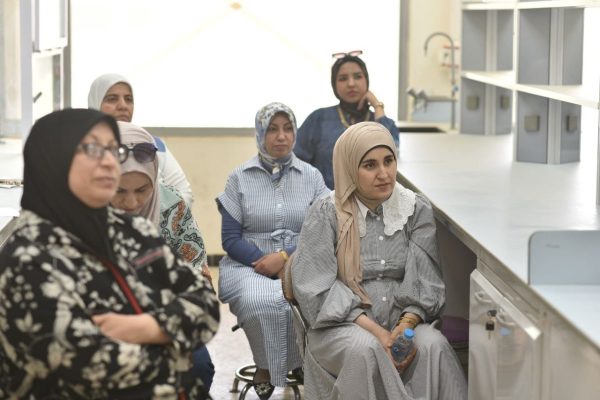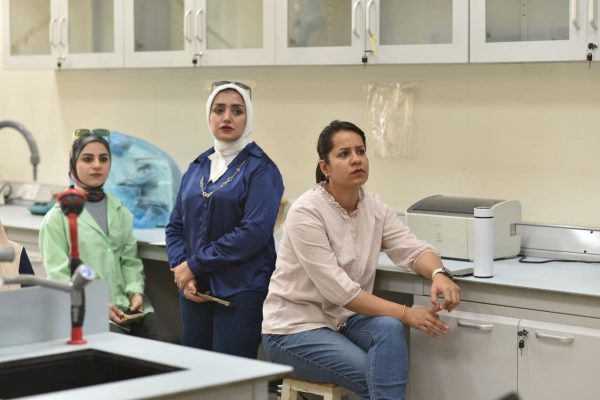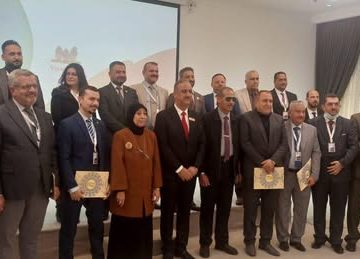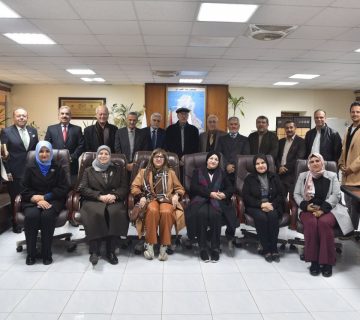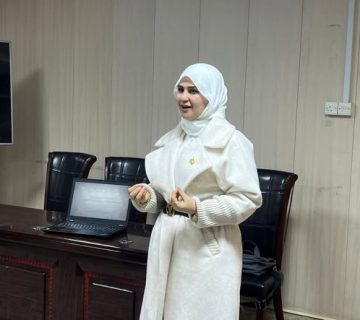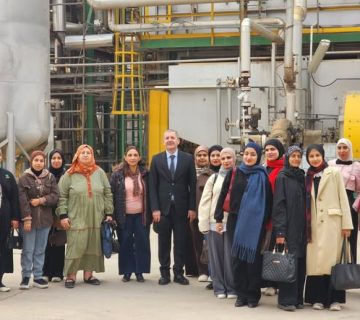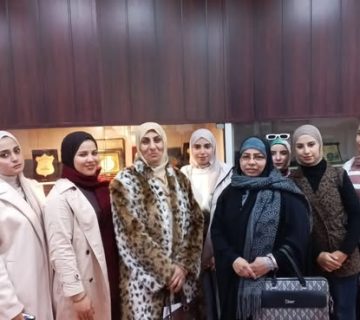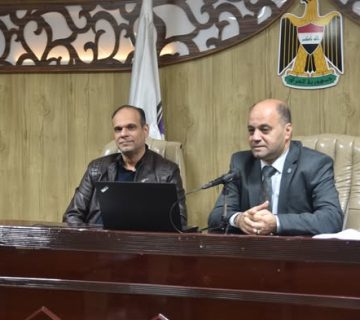Under the patronage of Professor Dr. Sameera Naji Khdim, Dean of the College of Science for Women, the Continuing Education Unit, in collaboration with the Department of Biology , organized a workshop entitled “The Role of Benthic Invertebrates in the Ecosystem.” The workshop was presented by Dr. Mayson Hassan Musallam and Dr. Israa Mohsen Jassim, and was attended by several faculty members and staff of the college.The workshop aimed to introduce invertebrates, defined as animals lacking a vertebral column and an internal skeleton, whether bony or cartilaginous. Invertebrates constitute approximately 1.5 million species, accounting for more than 79% of all currently known animal species. Most invertebrates, though not all, are characterized by the presence of an exoskeleton, a ventral nerve cord, and a heart located dorsally in the body.The workshop discussed the classification of invertebrates into two primary categories: the first includes primitive animals, which comprise a single phylum, and the second encompasses multicellular animals such as sponges, cnidarians, flatworms, mollusks, and others.Furthermore, the workshop emphasized the significance of invertebrates, highlighting their vital role in marine environments and scientific research, especially nematodes, due to their genetic makeup, short life cycles, and simple body structures. Certain species are employed as biological indicators for environmental assessment and as agents in the biological control of some agricultural and pathogenic pests. Invertebrates also serve as food sources for humans and animals, including shrimp, oysters, and crayfish. They contribute to soil fertility through their waste and burrowing activities, similar to earthworms. Additionally, they play a role in natural pollination, provide economic benefits such as silk production from silkworms, honey from bees, and the use of sponges, as well as contribute to the production of chemical and toxic substances currently utilized in the treatment of various human diseases.Conversely, the workshop addressed the harmful effects posed by certain invertebrates, which act as intermediate hosts or vectors for the larval stages of several parasites responsible for serious human diseases. These include the malaria parasite transmitted by the Anopheles mosquito, the parasite causing African sleeping sickness transmitted by the tsetse fly, and the parasite responsible for schistosomiasis. The number of disease cases transmitted annually by invertebrates is estimated to exceed ten million. Moreover, some species cause severe pain and physical harm that may result in death due to their toxic stings, which adversely affect human activity and vitality.
The workshop concluded by affirming that the invertebrate community represents a complex and functionally significant group within most ecosystems, whether terrestrial or aquatic, occupying various levels of the food chain.
